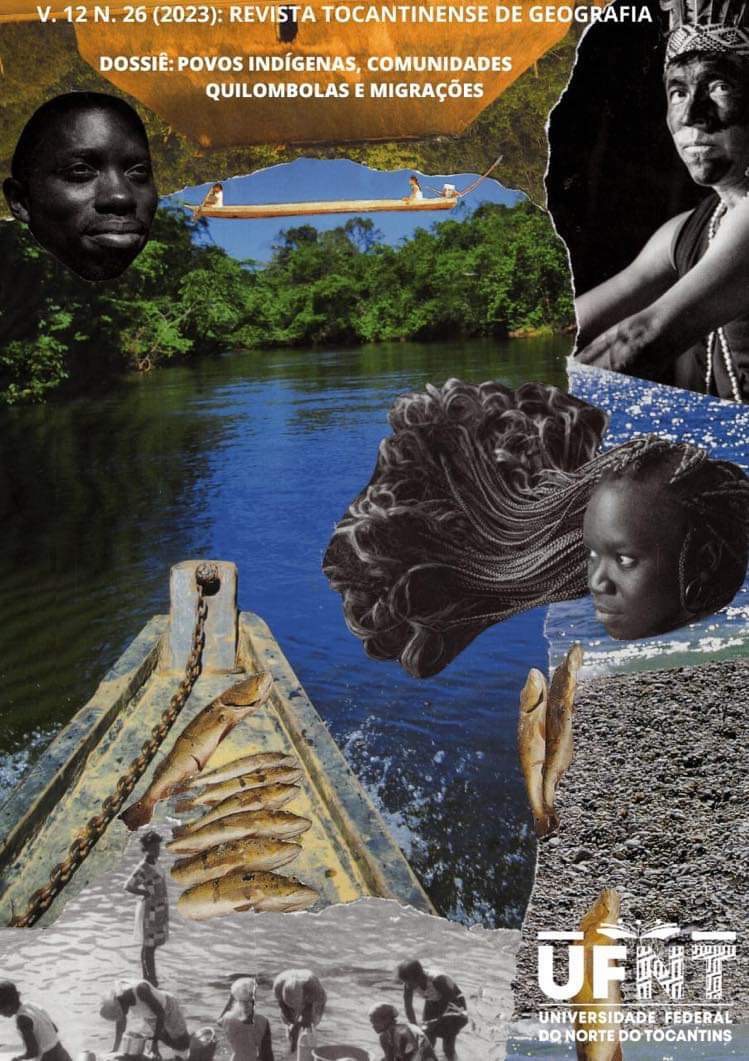O PROTAGONISMO INFANTIL NA EDUCAÇÃO DE CRIANÇAS INDÍGENAS
reflexões a partir do documentário Waapa / povo Yudjá
DOI:
https://doi.org/10.20873/rtg.v12i26.15403Schlagworte:
infância, decolonialidade, gêneroAbstract
A criança, independente das diferenças socioculturais, de gênero ou qualquer outro dispositivo discriminador, deve ter seus direitos como cidadãos respeitados e preservados. O projeto violento e opressor do colonialismo resultou na ruptura dos povos originários com a sua cultura, visto que ao longo desse processo foi consolidado um modelo universal de características europeias. Deste modo, o presente trabalho busca caracterizar a infância indígena com base na teoria decolonial, a partir da discussão do documentário Waapa. Para tanto, o documentário foi analisado a partir da técnica de análise de conteúdo temática proposta por Bardin. Foram criadas três categorias norteadoras da discussão: Natureza, Gênero e Cultura. Foi possível observar as particularidades das vivências indígenas na infância e o modo como a cultura e os elementos da natureza se relacionam com os marcos do desenvolvimento infantil, bem como, a formação social e humana de cada criança. Ficou evidente ao longo das cenas o protagonismo infantil, entendendo a criança como sujeito participativo, ativa em suas relações sociais e interações, propondo uma noção de infância mais diversa e que ganha espaço e visibilidade. Ressalta-se que é necessário o olhar do giro decolonial para que se possa compreender a singularidade e sentimento de infância de cada povo.
Literaturhinweise
ARIÈS, P. História social da criança e da família. Trad. Dora Flaksman. 2. ed. Rio de Janeiro: LTC, 2016.
BARDIN, L. Análise de Conteúdo. Lisboa: Edições 70, 2016.
BRASIL. Lei nº 8.069, 13 de julho de 1990. Dispõe sobre o Estatuto da Criança e do Adolescente e dá outras providências. Diário Oficial da União. ano 1990, Disponível em: https://www.planalto.gov.br/ccivil_03/leis/l8069.htm. Acesso em: 18 nov. 2022.
BUMLAI, D. U. M.; FARGETTI, C. M.; REEKS, D.; MENDONÇA, P.; MEIRELLES, R. Waapa. Documentário. Rio de Janeiro: Maria Farinha Filmes, 2017. Raído, v. 15, n. 39, p. 203–208, 2021. DOI: 10.30612/raido.v15i39.14933. Disponível em: https://ojs.ufgd.edu.br/index.php/Raido/article/view/14933. Acesso em: 14 nov. 2022.
CLASTRES, P. A. Arqueologia da violência: pesquisas de antropologia política. São Paulo: Cosac Naify, 2014.
COELHO, O. P.; BARBOSA, M. C. S. Anarquismo e descolonização: possibilidades para pensar a infância. Childhood & Philosophy, v. 13, n. 27, p. 335-352, 2017.
DIDONET, V. Construção sócio-histórica da infância na América Latina e Caribe: as várias infâncias. Texto base de conferência proferida na Universidade Católica do Peru, Lima, 2005. Disponível em: http://primeirainfancia.org.br/construcao-socio-historica-da-infancia-na-america-latina-e-caribe-as-varias-infancias/. Acesso em: 16 dez. 2022.
KUHN JÚNIOR, N.; MELLO, B. B. A noção de infância e adolescência: inflexões decoloniais sobre os direitos de crianças e adolescentes na América Latina. Revista Brasileira de História e Ciência Sociais, v. 12, n. 24, p. 284-312, jul./dez. 2020. https://periodicos.furg.br/rbhcs/article/view/11899.
MALDONADO-TORRES, N. Sobre la colonialidad del ser: contribuciones al desarrollo de un concepto. In: CASTRO-GÓMEZ, Santiago; GROSFOGUEL, Ramon (Orgs.). El giro decolonial: reflexiones para uma diversidad epistêmica más allá del capitalismo global. Bogotá: Siglo del Hombre Editores, 2007, p. 127-167.
MELIÀ, B. S. J. El guaraní: experiência religiosa. Assunção: Ceaduc/Cepag, 1991.
MENEZES, P. M. Corpo preparado, alma protegida: jeitos de cuidar e modos de aprender no crescimento da criança Yudja. 2017. Dissertação (Mestrado em Educação) - Faculdade de Educação, Universidade de São Paulo, São Paulo, 2017.
MIGNOLO, W. Colonialidade de cabo a rabo: o hemisfério ocidental no horizonte conceitual da modernidade. In: LANDER, E. (Org.). A colonialidade do saber: eurocentrismo e ciências sociais - perspectivas latino-americanas. Buenos Aires: Colecciûn Sur Sur, 2005, p. 33-49.
QUIJANO, A. Colonialidade do poder, eurocentrismo e América Latina. In: LANDER, E. (Org.). A colonialidade do saber: eurocentrismo e ciências sociais - perspectivas latino-americanas. Buenos Aires: Colecciûn Sur Sur, 2005, p. 107-130.
QUIJANO, A. Colonialidade do Poder e Classificação Social. In: SANTOS, B. de S.; MENEZES, M. P. (Orgs.). Epistemologias do Sul. Coimbra: Edições Almedina SA, 2009, p. 73-118.
SALVA, S; SCHUTZ, L. W; MATTOS, R. S. Decolonialidade e interseccionalidade: Perspectivas para pensar a infância. Cadernos de Gênero d Diversidade, v. 7, n. 1, p. 160–178, 2021. https://doi.org/10.9771/cgd.v7i1.43546.
SANTIAGO, F. Eu Quero Ser o Sol – crianças pequenininhas, culturas infantis, creche e intersecção. São Carlos: Pedro & João Editores, 2019.
SOUSA, V. L. M. S. O sentimento de infância no Brasil: uma tentativa de decolonização. Revista Brasileira de Sociologia do Direito, v. 9, n. 3, p. 123-146, 2022.
WAAPA. Direção: David Reeks, Paula Mendonça e Renata Meirelles. Produção: Maria Farinha. [S. l.: s. n.], 2017. Disponível em: <https://www.youtube.com/watch?v=7y3e57XZRKs>.
WUNDER, A. Infância Yudjá e a educação em um mundo vivo: Pensamentos em torno do filme Waapa. In: BARREIRO, A.; CAVALCANTE, N. A. da S.; FARIA, A. L. G. de (Orgs.) Pesquisas e pedagogias: educação para as diferenças. Uberlândia: Navegando Publicações, 2020. p. 73 – 90.
Downloads
Veröffentlicht
Zitationsvorschlag
Ausgabe
Rubrik
Lizenz
Copyright (c) 2023 Tocantinense Journal of Geography

Dieses Werk steht unter der Lizenz Creative Commons Namensnennung - Nicht-kommerziell - Keine Bearbeitungen 4.0 International.
Revista Tocantinense de Geografia vergütet keinen Autor für die Veröffentlichung seiner Texte. Der Inhalt der in dieser Zeitschrift veröffentlichten Texte liegt in der Verantwortung der Autoren.









.png)












